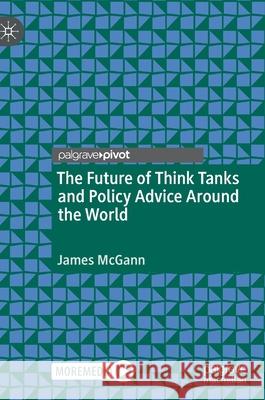The Future of Think Tanks and Policy Advice Around the World » książka
topmenu
The Future of Think Tanks and Policy Advice Around the World
ISBN-13: 9783030603786 / Angielski / Twarda / 2021 / 330 str.
Kategorie BISAC:
Wydawca:
Palgrave MacMillan
Język:
Angielski
ISBN-13:
9783030603786
Rok wydania:
2021
Wydanie:
2021
Ilość stron:
330
Waga:
0.56 kg
Wymiary:
21.01 x 14.81 x 2.06
Oprawa:
Twarda
Wolumenów:
01
Dodatkowe informacje:
Wydanie ilustrowane











